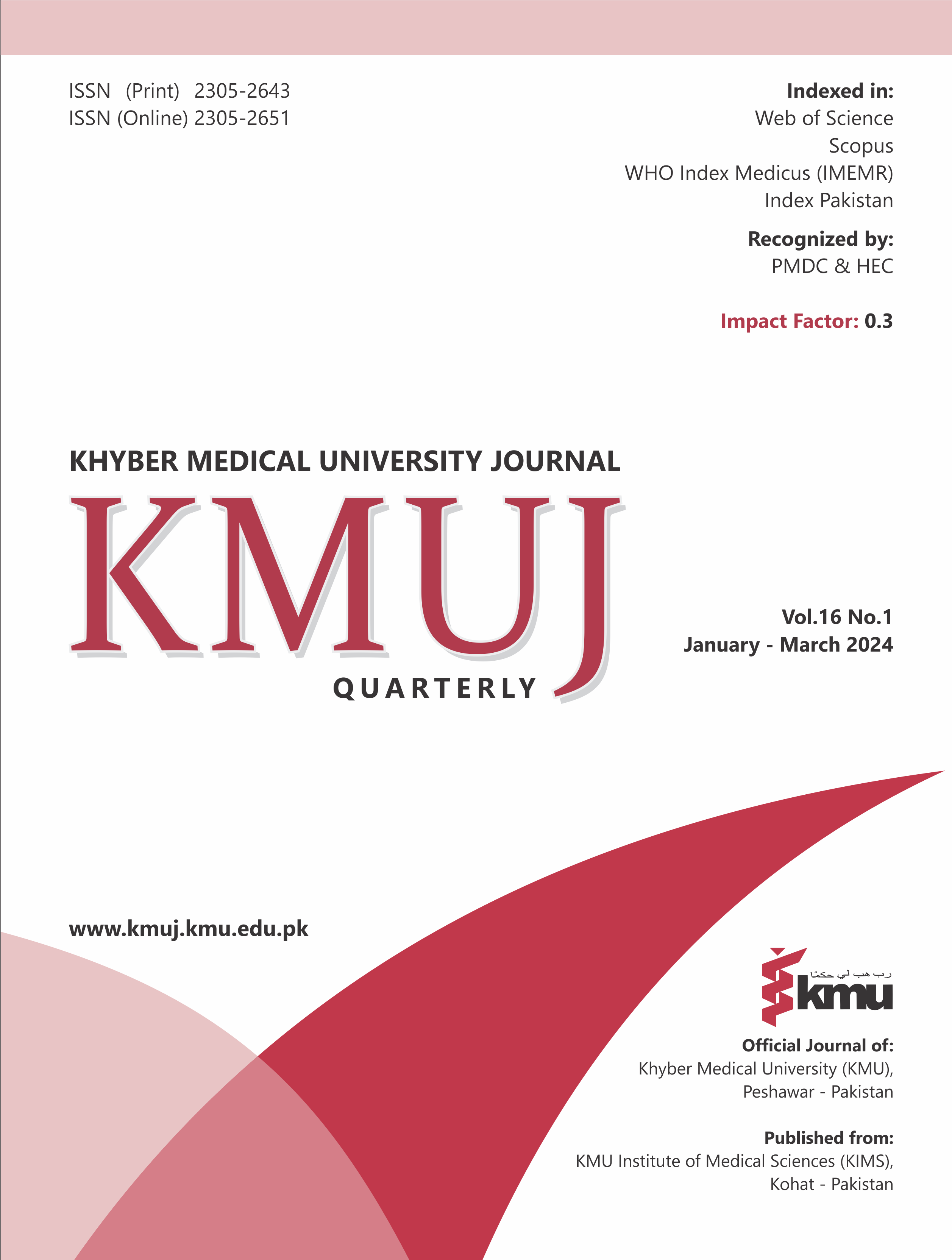Living in the shadow of autism: the lived experience of having a sibling with autism
Main Article Content
Abstract
OBJECTIVE: This study was conducted to illuminate lived experiences of individuals having a sibling with autism.
METHODS: This qualitative case study was conducted to explore the lived experiences of a 20-year-old girl living with a 17-year-old brother with autism. Data was collected through interactive, semi-structured interviews. Two 60-minute interactive interview sessions were conducted, recorded and transcribed. Rigor in the study was ensured through prolonged engagement and researcher familiarity with the data. Feedback from the participant and nursing faculty members was sought for revisions. Data was analyzed following Van Manen's six-step phenomenological approach. OneNote 2016 software was utilized to record, organize, and extract interview data and codes.
RESULTS: The data analysis resulted in the identification of three main themes: "hiding autism," "I never had a childhood", and "motherly sister". These themes were further divided into seven sub-themes, including "withdrawing from friends", "anguish over non-normative behaviors", "avoiding others' questions", "you have to take care of him", "struggling with academics," "an embrace full of positive energy," and "never leaving him alone".
CONCLUSION: This study highlights the complex experiences of siblings living with a sibling diagnosed with autism, revealing both challenges and moments of resilience and love. The findings emphasize the importance of tailored support and increased awareness for promoting the well-being of siblings in similar situations. However, its single-participant limitation calls for broader, diverse studies to understand these experiences across various cultural, economic, and social contexts.
Article Details

This work is licensed under a Creative Commons Attribution 4.0 International License.
Work published in KMUJ is licensed under a
Creative Commons Attribution 4.0 License
Authors are permitted and encouraged to post their work online (e.g., in institutional repositories or on their website) prior to and during the submission process, as it can lead to productive exchanges, as well as earlier and greater citation of published work.
(e.g., in institutional repositories or on their website) prior to and during the submission process, as it can lead to productive exchanges, as well as earlier and greater citation of published work.
References
Javadian SR, Kafi FS, Babaeian N, Sadati AK. The Coping Strategies to Autism Disorder among Mothers of Autistic Children: A Qualitative Study. Iran J Rehabil Res Nurs 2022;8(3):17-29. https://doi.org/10.22034/IJRN.8.3.17
Gómez LE, Morán ML, Alcedo MÁ, Arias VB, Verdugo MÁ. Addressing quality of life of children with autism spectrum disorder and intellectual disability. Intellect Dev Disabil 2020;58(5):393-408. https://doi.org/10.1352/1934-9556-58.5.393
Webster A, Feiler A, Webster V, Lovell C. Parental perspectives on early intensive intervention for children diagnosed with autistic spectrum disorder. J Early Child Res 2004;2(1):25-49. https://doi.org/10.1177/1476718X0421002
McHale SM, Updegraff KA, Whiteman SD. Sibling relationships and influences in childhood and adolescence. J Marriage Fam 2012;74(5):913-30. https://doi.org/10.1111/j.1741-3737.2012.01011.x
Petalas MA, Hastings RP, Nash S, Reilly D, Dowey A. The perceptions and experiences of adolescent siblings who have a brother with autism spectrum disorder. J Intellect Dev Disabil 2012;37(4):303-14. https://doi.org/10.3109/13668250.2012.734603
Quatrosi G, Genovese D, Amodio E, Tripi G. The Quality of Life among Siblings of Autistic Individuals: A Scoping Review. J Clin Med 2023;12(3):735. https://doi.org/10.3390/jcm12030735
Benderix Y, Sivberg B. Siblings' experiences of having a brother or sister with autism and mental retardation: A case study of 14 siblings from five families. J Pediatr Nurs 2007;22(5):410-8. https://doi.org/10.1016/j.pedn.2007.08.013
Petalas MA, Hastings RP, Nash S, Dowey A, Reilly D. “I like that he always shows who he is”: The perceptions and experiences of siblings with a brother with autism spectrum disorder. Intl J Disabil Dev Educ 2009;56(4):381-99. https://doi.org/10.1080/10349120903306715
Kocabiyik OO, Fazlioglu Y. Life Stories of Parents with Autistic Children. J Educ Train Stud 2018;6(3):26-37. https://doi.org/10.11114/jets.v6i3.2920
Leedham AT, Thompson AR, Freeth M. A thematic synthesis of siblings' lived experiences of autism: Distress, responsibilities, compassion and connection. Res Dev Disabil 2020; 97:103547. https://doi.org/10.1016/j.ridd.2019.103547
Morris V, Hendry G, Wilson C, Gillespie-Smith K, Ballantyne C. A comparison of attitudes and knowledge towards autism based on adult sibling experiences. J Adult Dev 2023; 2:1-13. https://doi.org/10.1007/s10804-023-09454-7
Seligman M, Darling RB. Ordinary families, special children: A systems approach to childhood disability. 3rd edition. The Guilford Press, New York, USA. ISBN: 978-1606233177
Tomeny TS, Barry TD, Fair EC, Riley R. Parentification of adult siblings of individuals with autism spectrum disorder. J Child Fam Stud 2017; 26:105667. https://doi.org/10.3109/13668250.2016.1248376
Mandleco B, Webb AE. Sibling perceptions of living with a young person with D own syndrome or autism spectrum disorder: An integrated review. J Spec Pediatr Nurs 2015;20(3):138-56. https://doi.org/10.1111/jspn.12117
Pavlopoulou G, Dimitriou D. In their own words, in their own photos: Adolescent females’ siblinghood experiences, needs and perspectives growing up with a preverbal autistic brother or sister. Res Dev Disabil 2020;1;97:103556. https://doi.org/10.1016/j.ridd.2019.103556
